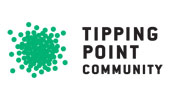
A Message from Our CEO Sam Cobbs
Statement
AUGUST 2020
Friends,
It’s common for people to ask me about where I grew up. When you’re living in the Bay Area, a town like Indianola in the Mississippi Delta seems like a world away. Then last week, my hometown made national news. NBC covered how COVID-19 was ravaging Indianola and featured a well-intentioned doctor who was failing to keep up. It spoke about one of the few patients who was fortunate enough to get extra support, but still died. The story painted a devastating picture of a community in despair. Too many pre-existing conditions, too few resources. Too much death.
The article didn’t shy away from the fact that Indianola is predominately Black. In fact, for the first time in my memory, the mainstream press is linking racism and health in a sustained drumbeat of coverage. Simultaneously, we see images of people pouring into the streets, read tragic statistics about unemployment, and feel a collective anxiety as schools remain closed. It’s tempting to look around and declare that our “systems” are broken and must be “fixed.” We’ve talked about broken systems before at Tipping Point, and I’ve used this type of language as well. But now, I think we should stop.
The systems that are perpetuating poverty are not broken, they were built this way. On purpose.
The hard truth is that from the very beginning of our nation, winners and losers have been drawn along racial and economic lines. From stealing the property of indigenous people, to segregation laws, to policies that lead to mass incarceration, to how public schools are funded. The systems are working exactly as they were intended: concentrating resources and power.
We, the Tipping Point community, have the opportunity to address this moment head on. The consequences of the current health crisis and the legacy of racism intersect at the center of Tipping Point’s mission. Our grantee leaders on the front lines know that what they're seeing isn't actually new, it’s just bigger: Hourly workers have always been the most vulnerable during economic downturns and people of color have always held essential jobs that put them at risk.
When I left Indianola at the age of 23, I had a plan. I knew in my bones that the opportunities I sought required something entirely new, not just a fix. I was right. Through a combination of hard work and luck, I’ve created a life in the Bay Area that would have been impossible back home. But fundamentally, the dynamics that are playing out in Mississippi are mirrored in the Bay Area.
When I first arrived in Oakland I’d drive around with a change of clothes in the trunk, just in case I got pulled over and brought into the police station. More than once, I put that extra set of clothes to use. I can tell you, based on the side glances I get to this day in some neighborhoods, that Mississippi and California aren’t as far apart as most of us want to believe.
Tipping Point is investing in organizations that understand these dynamics and know what it takes to support people in charting a different path. Year after year, we have been deliberate in our funding, support, and measurement. Our work is purposeful.
When the NBC article came out, my first reaction was to call my mom who still lives in Indianola. The doctor featured in the story is her doctor. When we talked, she told me that the man who died in the story was my old friend, Big Mike. I hadn’t talked to Mike in a long time, but I remember him fondly. It all hits me very hard, but unfortunately, doesn’t feel new. The consequences we’re seeing for low-income communities are not unprecedented. In fact, they are predictable.
We can no longer point our finger at broken, blameless systems. The system is made up of people, including each of us, who make decisions every day.
Let’s take this moment and turn it into a movement. On purpose.
Sam Cobbs
CEO | Tipping Point Community